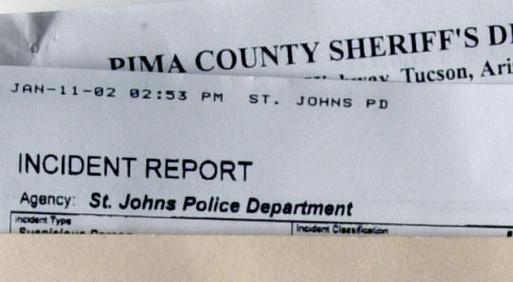Pima County plans to centralize its handling of public records requests, and it’s asking the public to weigh in on the proposed policy through Nov. 7.
“This centralized system will streamline the public records request process, eliminate duplication of effort, and provide for a single comprehensive response to multifaceted public records requests,” Administrator Chuck Huckelberry wrote in an Oct. 24 memo.
Until now, Huckelberry said, each county agency handled its own requests, and sometimes the response was slow, resulting in complaints to his office.
Since no one has been keeping tabs on requests, the scale of the problem is unknown, as is the number of requests typically received in a year and who submits them.
Central to the county’s proposal is an online request portal at http://1.usa.gov/12TUG6Z. It can also be reached through www.pima.gov by clicking on “Public Record Request” under the Quick Links header.
Requesters will not receive a tracking number or a designated contact person for their request, but a county employee will be expected to quickly acknowledge that a request has been received, said Robin Brigode, clerk of the board.
As of Monday, when a requester hits submit on the form, the form goes blank. There is no immediate indication the request has been sent, but when the Star tested the portal, a reporter did receive a confirmation email within minutes and got the requested records within hours.
The information entered in the portal is funneled into a database that will be used to track requests and ensure that responses are received “promptly,” as the law requires, Brigode said.
The policy defines “prompt” as “quick to act” and “without delay,” but it also builds in a presumed response time of five business days, a time span questioned by Dan Barr, a public access attorney who represents the First Amendment Coalition of Arizona.
“If it’s a one-page record, ‘quick to act’ means getting it to you fairly quickly,” Barr said.
Brigode said the intention is to continue to provide records as quickly as possible.
Barr pointed to a few other areas where the proposed policy may conflict with Arizona’s public records law:
WRITTEN REQUESTS
The proposed policy states that a requester “shall” fill out the web form or a paper form the county offers, but state law does not require this.
Brigode said her office would accept requests made over the phone and enter them into the tracking database; however, that possibility is not laid out in the policy.
FEES
Case law has set a standard of reasonableness in copying fees paid by people requesting records that won’t be used for a commercial purpose, Barr said.
The proposed policy states the county can charge for the cost of materials, the machinery to do the reproduction and the cost of labor, but Barr said those charges are only allowed for commercial requesters.
“They can’t charge the cost of doing business for noncommercial purposes,” he said.
The proposed charge of 35 cents per page may fall under the reasonableness standard, Barr said, but the logic supporting it is faulty.
Officials said the county has not recently done an analysis of copying costs and couldn’t explain why copies of county documents would cost more than three times what OfficeMax charges, 10 cents a page.
Huckelberry said that unlike OfficeMax employees, officials have a responsibility to make sure the records they provide make sense.
Brigode said a requester’s ability to pay for records could be taken into account.
The proposed policy does not mention that Arizona law requires public records to be available for inspection during business hours, which would allow a member of the public to review records in county offices for free.
REDACTION
Some county officials have interpreted the public records law to allow charging not only for copying time, but also for time spent removing confidential and private information from publicly released documents.
Sean Holguin, an attorney with the Pima County Sheriff’s Department, has repeatedly said the department may charge for redaction.
Barr said that’s definitely not allowed. “They’re going to wind up getting sued and losing in court,” he said.
The proposed policy lists several types of information that could be redacted as “personally identifiable.” It includes information generally accepted to be private — Social Security numbers and credit card numbers — as well as information often already available in the public sphere, such as addresses and phone numbers.
“I think it’s too broad a brush here,” Barr said. “I think what they’re inviting people to do here is redact all personally identifiable information, and that’s not the law.”
ELECTRONIC RECORDS
The proposed policy does not include electronic records in the definition of public records and includes a flat fee of $5 for a CD if records are delivered that way.
The assumption is that putting records on a CD would require scanning, rather than dragging and dropping records that are already maintained electronically, Brigode said.
“If we’re going to email records, there’s no charge,” she said.
COMMENTS INVITED
County officials emphasize that the proposed policy and price schedule is not final.
Comments can be submitted to the clerk of the board at robin.brigode@pima.gov





